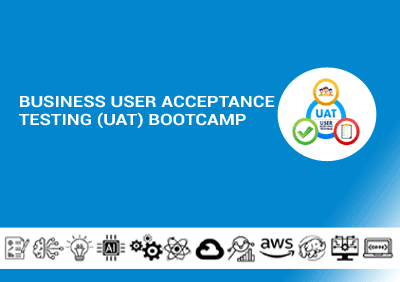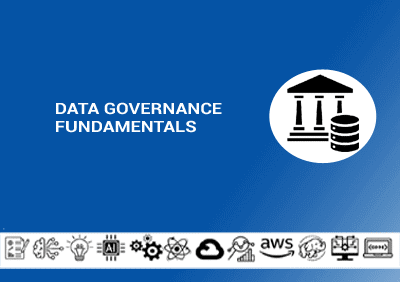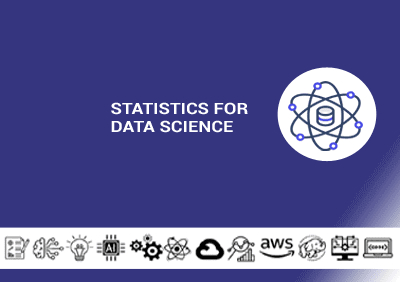- Overview
- Prerequisites
- Audience
- Curriculum
Description:
This intensive, one-day course is designed to provide business leaders with an in-depth understanding of Generative AI and its transformative potential across various business functions. Through a combination of theory, real-world case studies, and hands-on learning, participants will gain the practical knowledge necessary to integrate Generative AI into their strategic decision-making, operations, customer engagement, and innovation efforts. The course will focus on how AI can drive efficiency, enhance competitive advantage, and foster innovation, while also addressing ethical considerations and the future of AI in business.
Duration: 2 Days
Course Code: BDT393
Learning Objectives:
By the end of this course, participants will be able to:
- Understand the fundamentals of Generative AI and how it differs from traditional AI.
- Identify key business applications of Generative AI, including customer engagement, marketing, operations, product development, and innovation.
- Assess the impact of AI on business models and organizational structures, including opportunities and challenges.
- Leverage Generative AI for improving decision-making, data analytics, and predictive insights.
- Understand the ethical implications and challenges associated with the implementation of AI in business.
- Develop an AI adoption strategy tailored to the unique needs and goals of their organization.
Basic knowledge of business management: Understanding of business functions like marketing, operations, finance, and strategy.Familiarity with digital tools and business software: Experience with CRM, ERP, and data analytics platforms.No prior experience with AI required
This course is designed for business executives, senior managers, entrepreneurs, product managers, and consultants, equipping them with the tools to leverage Generative AI for business innovation and strategic growth.
Course Outline:
Module 1: Introduction to Generative AI for Business Leaders
- What is Generative AI?
- Overview of Generative AI and its core technologies: Natural Language Processing (NLP), Machine Learning, and Neural Networks.
- The difference between traditional AI and Generative AI (e.g., ChatGPT, DALL·E, etc.).
- Key benefits of Generative AI: Innovation, efficiency, and scalability.
- Why Generative AI Matters in Business
- How AI is reshaping business strategies and operations.
- Real-world examples of companies successfully implementing AI: OpenAI, Microsoft, Google, and startups using AI for competitive advantage.
Module 2: AI in Business Strategy and Decision-Making
- AI-Driven Decision Support
- How AI can assist in strategic decision-making by analyzing vast datasets and providing predictive insights.
- Real-life case studies of decision-making optimization using AI (e.g., financial forecasting, market trend analysis).
- Leveraging AI for scenario planning and risk management.
- Data-Driven Business Models
- Transforming traditional business models with AI (e.g., subscription models, data-as-a-service).
- AI in optimizing resource allocation, performance metrics, and operational efficiencies.
Module 3: Leveraging AI for Marketing and Customer Engagement
- Personalized Marketing with Generative AI
- How AI can create personalized customer experiences at scale (e.g., personalized emails, recommendations, content generation).
- Tools for AI-driven customer segmentation and targeted campaigns.
- Real-world examples of AI in marketing: Netflix, Amazon, Spotify.
- AI-Enhanced Customer Engagement
- AI chatbots and virtual assistants for real-time customer interaction.
- Automating customer service and support (e.g., customer support bots, AI-powered knowledge bases).
- Enhancing customer experience through AI-generated content (e.g., product descriptions, ad copy).
Module 4: AI for Product and Service Innovation
- AI in Product Development
- How Generative AI accelerates product ideation, design, and prototyping (e.g., AI-generated product designs, 3D printing).
- AI in improving the speed and accuracy of R&D efforts.
- Case studies of AI-driven innovations: AI in healthcare, automotive, fashion, and entertainment.
- Using AI for Innovation and Competitive Advantage
- How to use AI for identifying market opportunities, creating new products, and generating business ideas.
- AI for enhancing existing products (e.g., AI-driven features or enhancements in consumer electronics, software, etc.).
Module 5: AI in Operational Efficiency and Cost Reduction
- AI in Business Operations
- How AI can streamline operations: supply chain management, inventory forecasting, and logistics.
- AI for automating repetitive tasks (e.g., robotic process automation in finance, HR, procurement).
- Case study: AI in manufacturing and logistics (e.g., Amazon’s supply chain AI).
- AI for Financial Management
- Using AI in budgeting, forecasting, and financial risk analysis.
- AI for optimizing pricing strategies and managing cash flow.
- Tools: AI for fraud detection, financial audits, and regulatory compliance.
Module 6: Ethical Considerations and Governance in AI
- Ethics and Bias in AI
- Understanding AI bias and its potential impact on business decisions.
- Creating frameworks for ensuring fairness and transparency in AI applications.
- Mitigating bias and improving AI model accuracy and inclusivity.
- AI Governance and Risk Management
- Establishing AI governance structures: policies, procedures, and oversight.
- Ensuring compliance with data privacy laws (e.g., GDPR, CCPA).
- Managing AI risk: Security, privacy, and accountability in AI-driven decisions.
Module 7: Building an AI Adoption Strategy for Your Business
- Steps to Implement AI
- How to assess AI’s potential in your organization and determine where it can add the most value.
- Roadmap for AI adoption: selecting tools, building AI teams, and integrating AI with existing systems.
- Budgeting for AI implementation and understanding ROI.
- Aligning AI with Business Objectives
- How to set measurable goals for AI-driven initiatives.
- Leveraging AI to improve KPIs across marketing, sales, operations, and customer service.
- Building an AI culture within your organization: upskilling employees, fostering innovation, and leadership.
Training material provided: Yes (Digital format)




